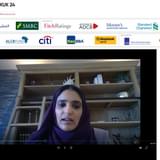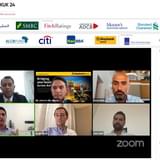The UK has played a central role in growing the global footprint for Islamic finance over the past several years, with significant growth at the turn of the century when the Islamic Finance taskforce was established by the Government.
Since the UK referendum in June and the decision to leave the European Union, now widely known as ‘Brexit’, questions have been raised about the far-reaching implications of Brexit and whether it could weaken the UK’s hold on Islamic Finance and open the door for other contenders.
The short answer appears to be ‘no’. The UK’s central role in the international Islamic finance market is unlikely to be significantly hampered by Brexit. As for ‘Why?’, the main reason is because no other European market currently has the depth of expertise in Islamic finance necessary to challenge London.
The UK’s position in Islamic finance is driven by three main factors; The London Stock Exchange’s role as a key global venue for sukuk issuance (nearly $46 billion raised through 64 sukuk issuers); London’s position as a global financial hub where many Islamic banks access international markets; and the importance of UK-based legal services due to the use of English law for the majority of international sukuk issuance.
London’s advantage over other financial-services markets developing Islamic finance remains secure for the foreseeable future. That said, the playing field may now widen over time for Islamic Finance. One interesting possibility is Luxembourg.
Luxembourg, like the UK, has a ‘sukuk friendly’ legal framework in place. Additionally, Luxembourg has Sharia compliant investor funds that places them at more of an advantage compared to other hubs looking to carve out their Islamic Finance footprint. Luxembourg could in time equip their banking system to handle sukuk legal frameworks. However, English law is likely to remain prevalent in Islamic finance. Importantly, most sukuk-active countries are English speaking, thus strengthening the UK already formidable advantage.
On the wider picture, there are other countries vying for a share in creating an Islamic Finance hub globally. That said, Islamic finance has historically been dominant in Malaysia and the Gulf Cooperation Council (GCC) (with Dubai and UAE leading in the GCC). However, over the last few years, Islamic finance has expanded its footprint throughout the Middle East, Indonesia, Turkey, the United Kingdom, Luxembourg and Hong Kong. Many countries, including Indonesia and Turkey, are trying to expand their Islamic Finance footprint domestically before they can play a wider role as an Islamic finance hub globally or even regionally.
Brexit, while not likely to weaken the UK’s dominant position in Islamic Finance, could create an interesting footrace over time with other markets likely to expand their footprint in the sector. Luxembourg in particular may make the race interesting in the long term, but it’s important to acknowledge that it is still very much a marathon with many miles to go before Luxembourg can knock the UK off the podium.







